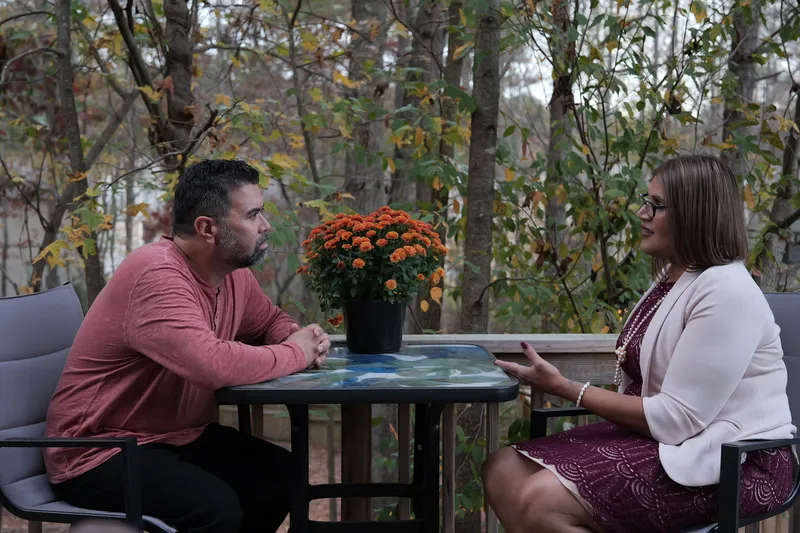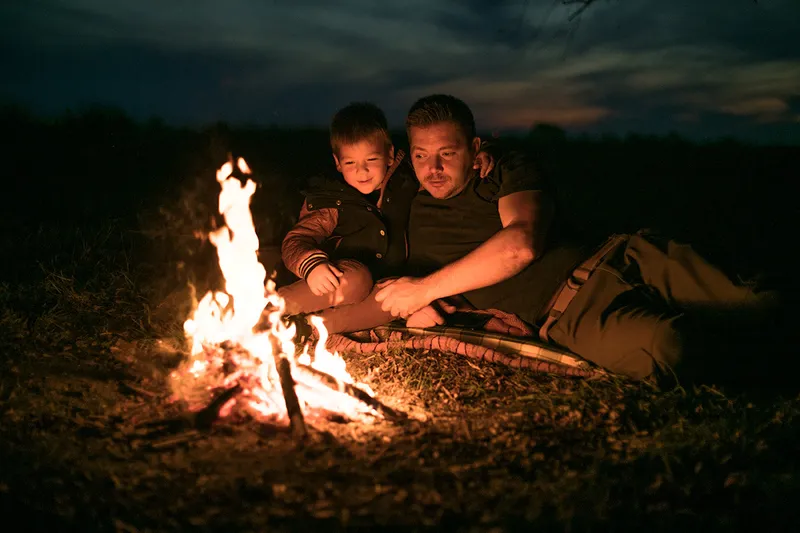
Relationship issues & breakups

What is it?
Our culture tells us romance is everywhere—we see it in movies, songs, books and television shows. While we biologically have a need for support and interpersonal relationships as human beings, romantic relationships often serve a different purpose from the connections we have with friends or family.
These relationships can look different to different people and can involve different genders or numbers of partners, but are often mutual, ongoing interactions that involve expressions of emotions towards each other like intimacy and affection.
But, there’s an explanation for why humans are constantly reimagining relationships: They take work if you want them to continue to run like a well-oiled machine. There is no perfect relationship or one-size-fits-all experience, however. Having a healthy relationship is hard and can affect your mental health—especially given the stressors and isolation that have become more common with modern living.
For example, the pandemic has had a (mostly unhelpful) impact on relationships: Divorces, as well as domestic violence and intimate partner violence (IPV) skyrocketed. Due to specific stressors, people who had or have unstable incomes, who are part of the LGBTQ+ community, and/or identify as part of a minority community were more likely to report relationship issues and major breakups post-2020. Of course, relationship challenges are not new with the pandemic, but it did compound many existing issues and created new ones.
The bottom line is that no relationship is without challenge, no matter how shiny and happy things may appear in popular media. Though it may take some work, identifying stressors in relationships, openly discussing feelings, and working through them individually and together, can help create a thriving relationship that brings a lot of joy to life.
What's causing it?
Many relationship challenges can be attributed to difficulty with communication. One partner thinks the other understands why they are angry, but they never explain their reasoning or feelings out loud, for example. Things can then fester and create more problems. While not a complete list, many factors can enhance relationship stress, including:
- Bills, debt, and other financial struggles
- Substance use and addiction
- Lack of intimacy or sex life
- Codependency (when one or both people rely on each other to an unhealthy extent)
- Family conflict
Poor communication, especially when combined with these kinds of other stressors, can be a sign of unhealthy relationships. These can have significant impacts on your health, happiness, and well-being, and sometimes the patterns can be subtle and hard to recognize. Some warning signs of an unhealthy relationship include:
- Cheating
- Not respecting personal space or other boundaries
- Creating a power imbalance
- Control over one partner’s life
- Feeling neglected, abandoned or unsupported
- Not prioritizing the relationship
- Loss of interest in the other person
While it’s always good to work on your communication skills, and find ways to repair a relationship that can be repaired, amazing communication won’t save every relationship. It may be that the relationship has become—or has always been—toxic.
When you’re in a toxic relationship, it may feel like you’re getting less than you’re giving. You may feel uneasy and like you are walking on eggshells around the other person. Toxic relationships can leave you feeling drained. It can be hard to identify a toxic relationship from the inside, however, so here are things to look for. Your partner may be toxic if they:
- Intentionally disrespect you
- Maintain a negative outlook on life (for example, constant criticism, complaining and hostility)
- Always place the blame on you
- Abuse you verbally, emotionally, physically, and/or sexually
- Manipulate or gaslight you
- Have control or power over you, or the relationship feels unbalanced
When toxic relationships escalate to abuse—whether emotionally, physically, and/or sexually—they threaten your safety. Abuse is not your fault, and, if your partner does any of the following, you’re experiencing abuse:
- Intentionally disrespects or belittles you (in private or public)
- Stalks or physically threatens you and/or your loved ones
- Tries to control your decisions (who you spend time with and what you do)
- Tries to control finances (controlling what and how you spend)
- Tries to control sex (pressuring or forcing things you aren’t comfortable with)
It’s important to recognize the difference between a relationship that can be saved (and is worth saving) and one that should be let go. If you’re feeling like you and your partner simply aren’t a good fit for each other, you have worked on issues, and they still exist, or if your relationship is toxic, it may be time to make a tough call. If the toxicity has escalated to abuse, it can be hard to leave, but is often necessary to protect you and/or your children and may require law enforcement support.
Breakups—especially separation and divorce—can take a huge toll on your well-being. Regardless of the reasons for it and who called it off with whom, a breakup is an adjustment. It is also a loss and can trigger the grieving process and ruminations on “why.” Recovering is a process that is often non-linear, but a crucial step is learning to recognize your value and the value you can bring to a future relationship and partner.
How should I deal with it?
There are three main ways to start developing strong relationships that are in your control. Understanding what you can and cannot control is a significant step in healing.
Build your self-esteem
Having challenges in a relationship does not mean something is wrong with you that needs changing, but it can be helpful to better understand yourself alone and with a partner. Doing so can help you to recognize your value. A few things that can help do that include:
- Treat your body (which includes your mind) well. It is not selfish to focus on yourself and understand how you feel and what makes you feel better (to cope). You have to take care of yourself before you can take care of other people.
- Set personal boundaries. Saying no is a challenging but complete sentence. Allow yourself time and space to do things that make you happy as an individual, and set limits where you can in your relationship.
- Imagine the life you want. Sometimes we never think about what we value and matters to us in a relationship until we are struggling. Take the time to reflect, and understand what you want for yourself and yourself in a relationship.
2. Develop your communication skills
In all aspects of our life, communication is important, so truly understanding how to communicate well with someone else can help you universally and not just in romantic relationships. Some ideas include:
- “Don’t react; respond.” Actively listen to your partner, then take a beat. Digest what they’re communicating before letting knee-jerk emotions get the best of you, and you say the first thing on your mind.
- Focus on emotions over blame. Start with the words “I feel” when discussing tough topics instead of “you did.”. This prevents finger-pointing and makes conversations more productive. It also focuses on how you are doing, not someone else.
- Schedule focused time to check-in. Life can get busy—consider setting up a regular weekly distraction-free time to talk with your partner. This can include couple’s therapy, where you can work more specifically on issues and communication with a neutral observer.
3. Know when to move on
Part of having a healthy relationship is knowing when one is no longer healthy or right for you. If you’re going through a breakup or are considering one, have an honest conversation with yourself:
- Understand the potential disconnect.
- What’s truly getting in the way of having a strong and supportive connection with a partner?
- How could getting better at communicating help or not help?
- How have you contributed to past relationship challenges (which may explain a pattern that is coming up in this one)?
- Figure out if you’re willing to do the work.
- Are you willing to put the work in to save a relationship? Both you and your partner need to answer that question separately.
- Explore different solutions that make sense for the relationship.
- What have you tried so far?
- What are you willing to try in the future?
- What’s off-limits for you?
- Accept what’s out of your control.
- Is the relationship toxic? Some people are unwilling to change their ways.
- Are you actually a good fit? It’s a sign—albeit not a dealbreaker—if you and a partner have dramatically different ways of approaching life.
It may seem incredibly challenging, but if you want to end a relationship, you can and are strong enough to do so. Once you make the decision, let your family and friends know you’ll need their support detaching from your partner in a healthy way. Do your best to limit interactions with your partner during the breakup process, including social media. Finally, cut yourself some slack and try to be self-compassionate: Whatever you’re feeling is OK. A crucial part of moving on is accepting the loss you’re undertaking.
Things to try
-
If you're going through a challenging time, think about who you feel comfortable with, and what interactions might feel supportive so you can tell people what you need—whether it's talking about how you’re feeling so you can release some pent-up emotions, or finding comfort by time together with no words exchanged.Explore More
-
Create an upbeat playlist
Aside from just sounding good, research shows that listening to music actually increases blood flow to regions in your brain that generate and control emotions. And studies show that faster music (usually performed at a tempo between 140 and 150 beats per minute) tends to generate more positive emotions than slower music. Queen’s “Don’t Stop Me Now” (at 156 BPM) is just one example of a song that might give you some positive emotions—it's the first of 10 in a research-backed playlist. But don't let us stop you from making your own playlist of songs that feel good to you.Explore More -
Plan out an enjoyable day
Taking the time to plan out an enjoyable day for yourself can give you something to look forward to, and the day itself can have numerous benefits ranging from reduced feelings of burnout to more energy and a fresher perspective. Instead of wondering what you should do, think about what you want to do. Though taking a joyride in a stolen Ferrari isn’t recommended, Ferris Bueller had some pretty good ideas—taking a long shower, hanging with your friends, going to the top of a tall building, treating yourself to a nice lunch, catching some sports, visiting a museum, singing and dancing, soaking in a hot tub are ideas that might help you start dreaming up your own options.Explore More
What can I do now?
-
WebsiteMan Therapy
-
Helpline | Online Live Chat | Text lineNational Domestic Violence Hotline
-
Helpline | Online Live ChatNational Sexual Assault Hotline | Rape, Abuse & Incest National Network (RAINN)



